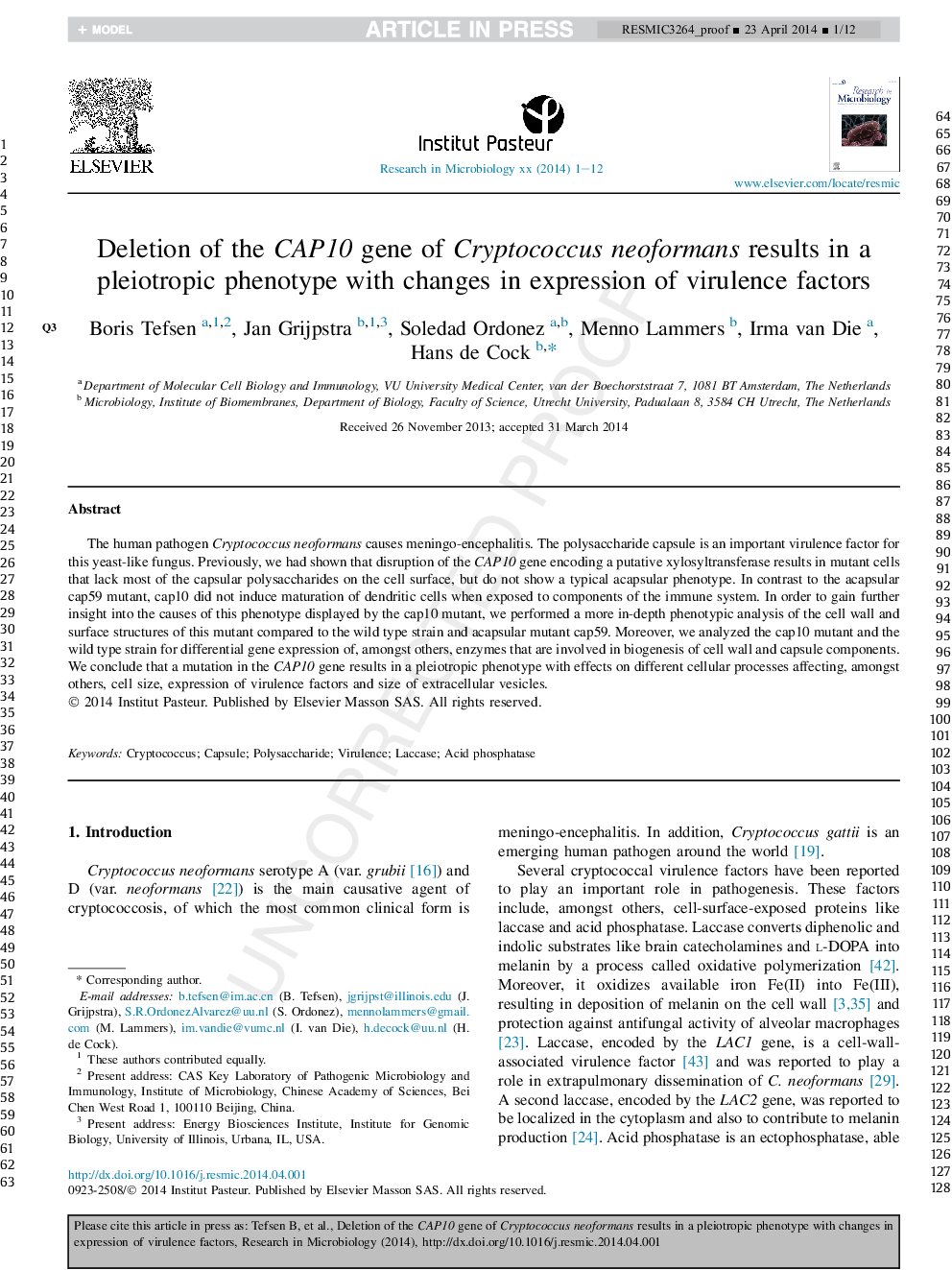| Article ID | Journal | Published Year | Pages | File Type |
|---|---|---|---|---|
| 6288068 | Research in Microbiology | 2014 | 12 Pages |
Abstract
The human pathogen Cryptococcus neoformans causes meningo-encephalitis. The polysaccharide capsule is an important virulence factor for this yeast-like fungus. Previously, we had shown that disruption of the CAP10 gene, encoding a putative xylosyltransferase, results in mutant cells that lack most of the capsular polysaccharides on the cell surface, but do not show a typical acapsular phenotype. In contrast to the acapsular cap59 mutant, cap10 did not induce maturation of dendritic cells when exposed to components of the immune system. In order to gain further insight into the causes of this phenotype displayed by the cap10 mutant, we performed a more in-depth phenotypic analysis of the cell wall and surface structures of this mutant compared to the wild type strain and acapsular mutant cap59. Moreover, we analyzed the cap10 mutant and the wild type strain for differential gene expression of, amongst others, enzymes that are involved in biogenesis of cell wall and capsule components. We conclude that a mutation in the CAP10 gene results in a pleiotropic phenotype with effects on different cellular processes affecting, amongst others, cell size, expression of virulence factors and size of extracellular vesicles.
Related Topics
Life Sciences
Immunology and Microbiology
Applied Microbiology and Biotechnology
Authors
Boris Tefsen, Jan Grijpstra, Soledad Ordonez, Menno Lammers, Irma van Die, Hans de Cock,
